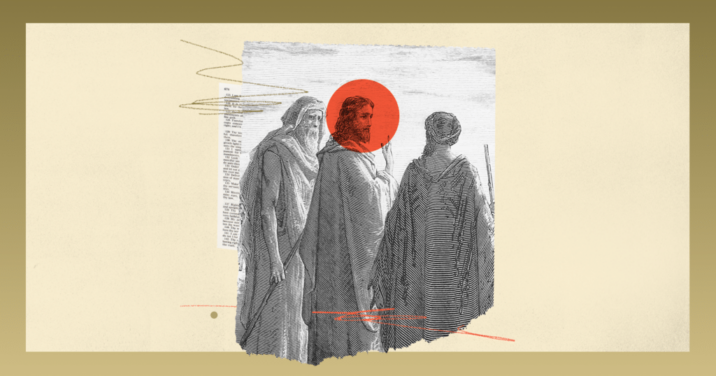Luke 24 is about Jesus’s resurrection, his post-resurrection interaction with his disciples, and his ascension to heaven. On two different occasions during this chapter Jesus appears to his followers, first to Cleopas and his friend on the road to Emmaus, and second, to “the eleven and those who were with them gathered together” (24:33). These are people who had been with Jesus for at least three years. They had seen him perform hundreds of miracles, they had heard him teach them and others, they had seen his love and compassion for the weak—and they were witness to his betrayal by Judas.
But now, Jesus had been crucified, and they were scared and confused: “What does this mean? Where do we go from here?”
When Jesus first appeared to Cleopas and his friend, they did not recognize him. Jesus walked with them for a while, but eventually turned to them and said, “O foolish ones, and slow of heart to believe!” (24:25). They had shared with him their confusion and heartbrokenness over his death, but they could not see the big picture. One might assume Jesus would say, “Hey, it’s me! You’ve seen all that I’ve done, and you’re still confused?”
But instead, Jesus conducted a seven-mile Bible study. “Beginning with Moses and the prophets,” Jesus walked these two disciples through the Scriptures. He might have talked about Genesis 3:15 and God’s promise to raise a seed of woman who would crush the head of the serpent for the salvation of mankind.
He probably pointed to the law and the sacrificial system and its fulfillment in the true lamb who was slain. He probably showed them the types and shadows—perhaps the exodus from Egypt as a picture of the Christian’s departure from a different slavery, one to sin and death. Or perhaps Christ showed how Adam and Moses and the ark and David were types of himself, pointing to the second Adam who would make all things new.
Perhaps he spoke of the servant in Isaiah who was led to slaughter, being smitten, stricken, and afflicted. Whatever specific Old Testament passages Jesus spoke of, he certainly showed them God’s promise to bring salvation to lost sinners, and how it was accomplished in his own life, death, and resurrection.
The disciples read the Scriptures, but did not see Jesus, even though the text shouts from beginning to end, “Look to Jesus! Trust in Jesus! Rest in Jesus!” Jesus wanted to make sure the disciples understood the Scriptures before he revealed himself to them. He wanted them to know that the Bible is true, trustworthy, and consistent. I think they were divinely kept from recognizing Jesus so they would base their understanding of the resurrection on the witness of Scripture and not on personal experience.
A privileged experience such as theirs, if not grounded in the word, would run the danger of becoming an individualized event that could only be accounted for by their testimony. But now they were in no such danger. Their belief in the resurrection wasn’t based on experience, but rested on the Scriptures.
Later in Luke 24, the remaining eleven disciples and their friends were gathered, and “as they were talking about these things, Jesus himself stood among them, and said to them, ‘Peace to you!’… ‘Why are you troubled, and why do doubts arise in your hearts?’” (24:36, 38).
And just as he did on the road to Emmaus, he pointed his disciples to the Scriptures: “‘Everything written about me in the Law of Moses and the Prophets and the Psalms must be fulfilled.’ Then he opened their minds to understand the scriptures” (24:44–45). Once again, it would have been easy for Jesus to say, “It’s me! I was raised from the dead!” But instead, he takes the time to lead them back to the Scriptures so they could see what they had missed.
Jesus believed the Scriptures were sufficient, and Christians today should believe the same. We need to know the Bible—what it points to, what it commands. We need to see what Jesus was very concerned that his disciples see: that the whole Bible is about him.
Experience matters, but assurance can rest solely upon God’s sufficient word.
***
This article was originally published in the March/April 2022 issue of Bible Study Magazine. Slight adjustments, such as title and subheadings, may be the addition of an editor.
Related articles
- The Ascension of Jesus: What It Is, Why It’s Often Overlooked & More
- Who Is Jesus? Answering Life’s Most Important Question
- How to Discover Your True Identity in Christ
Related resources







